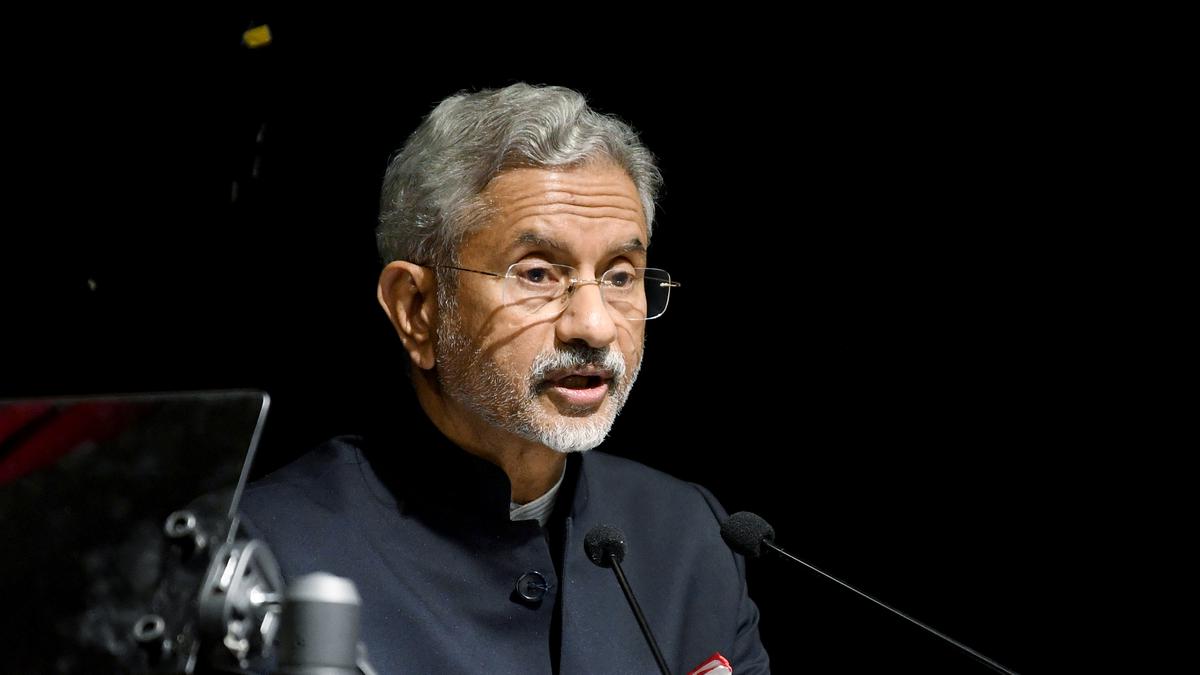External Affairs Minister S. Jaishankar stated on Monday that India expects punishment against those responsible for last year’s attacks on its high commission in London and consulate in San Francisco, as well as those who threatened Indian diplomats in Canada.
According to the External Affairs Minister, India’s diplomats were “threatened and intimidated in many ways” on a regular basis, and we “got very little comfort from the Canadian system at that time,” thus India had to halt the issuing of visas in Canada.
Following Canadian Prime Minister Justin Trudeau’s claims of a “potential” Indian agent role in the murder of Khalistani rebel Hardeep Singh Nijjar, India briefly halted the issuing of visas to Canadian nationals in September of last year.
A few weeks later, the visa services were once again offered. India vehemently denied the accusations made by Mr. Trudeau.
The latitude granted to separatists, terrorists, and anti-Indian groups in Canada, according to India, remains its “core issue” with that country.
“We expect the culprits in the attack in our consulate in San Francisco to be brought to book, we expect action against people who stormed into our high commission in London and we expect action against people who threatened our diplomats (in Canada),” Mr. Jaishankar stated during a summit hosted by TV9 Television.
A pro-Khalistani group stormed the Indian High Commission in London on March 19, and in July, there was an attempted fire at the Indian Consulate in San Francisco.
Threats were made against the Indian ambassadors in Canada in September.
“Due to the unsafe working environment for our diplomats, we were forced to halt the issuing of visas in Canada. There were frequent threats against our ambassadors. They were intimidated in a lot of ways, and at the time, the Canadian system offered us very little solace,” Mr. Jaishankar stated.
We came to a point where, in my capacity as a minister, I could no longer take the chance of exposing the ambassadors to the type of violence that was evidently common in Canada at the time. It has been fixed in that particular area. Our visa procedures are essentially routine as of right now,” he continued.
Since then, the situation has improved, according to Mr. Jaishankar.
He gave examples of smoke bombs being thrown into Indian embassies in Canada in response to a query about the space allotted to Khalistani militants there.
“They (Canada) incessantly assert that we are democratic. People say these things because they have the right to free expression,” Mr. Jaishankar stated.
“Intimidating ambassadors while they are performing their duties is not within the bounds of free speech. “This is misuse of the right to free speech; throwing smoke bombs at embassy and consulates and encouraging violence and separatism against a friendly state are not examples of free speech,” the speaker continued.
According to Mr. Jaishankar, those responsible for these assaults ought to be held accountable.”In the UK, things have gotten better. In Australia and the United States, we find a much firmer response now,” he continued.”There is a message in it if a receiving state does not look into and prosecute someone who assaults our consulates and embassy. “I don’t think sending that kind of message for their own reputation is good for any of these countries,” Mr. Jaishankar stated.

















+ There are no comments
Add yours